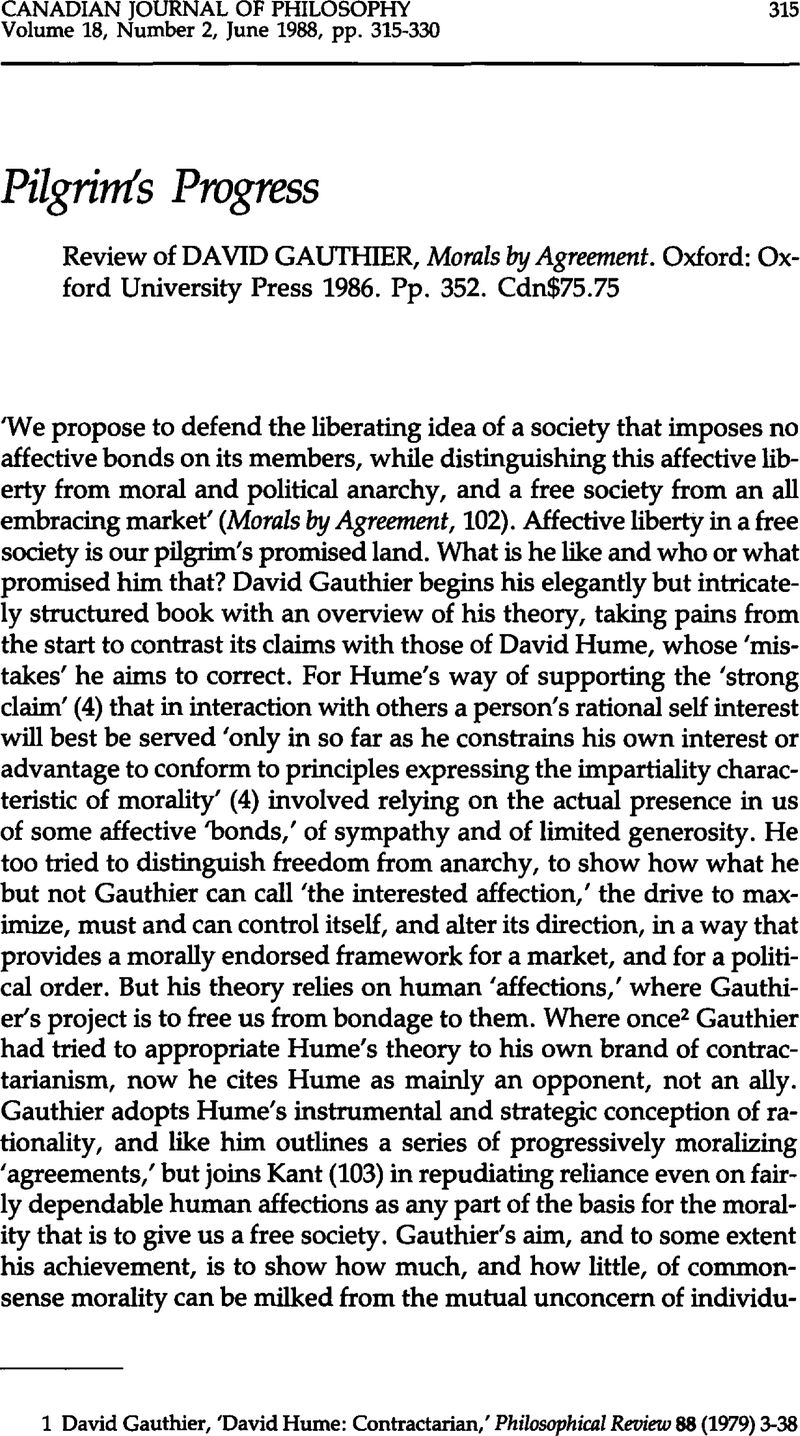Published online by Cambridge University Press: 01 January 2020

1 Gauthier, David ‘David Hume: Contractarian,’ Philosophical Review 88 (1979) 3-38CrossRefGoogle Scholar
2 Gauthier, David The Logic of Leviathan: The Moral and Political Theory of Thomas Hobbes (Oxford: Clarendon Press 1969)Google Scholar; and ‘Thomas Hobbes: Moral Theorist,’ Journal of Philosophy 76 (1979) 547-59
3 Gauthier, David ‘The Politics of Redemption?,’ in MacAdam, J. Neumann, M. and Lafrance, G. eds., Trent Rousseau Papers, Revue de 1’Universite d’Ottawa 49 (1980) 329-56Google Scholar
4 David, Gauthier ‘The Unity of Reason: A Subversive Reinterpretation of Kant,’ Ethics 96 (1985) 74-88Google Scholar
5 de Tocqueville, Alexis Democracy in America (New York: The Colonial Press 1899)Google Scholar Book II, Chapter II
6 For then the second part of Gauthier’s test for basic endowment will not be met. One’s body, ‘used’ by one when one is alive and ‘present,’ is also usable by others once one is ‘absent’ in the way the dead are absent. (This note was added after reading Gauthier’s reply.)
7 ‘Donna e mobile … ?’ For further evidence see Rosenthal, R. Hall, J .A. DiMatteo, M.R. Rogers, P.L. Archer, D. Sensitivity to Nonverbal Communication: The PONS Test (Baltimore, MD: Johns Hopkins University Press 1979)Google Scholar.
8 Here we should return to David, Gauthier ‘The Social Contract as Ideology,’ Philosophy and Public Affairs 6 (1977) 130-64Google Scholar.